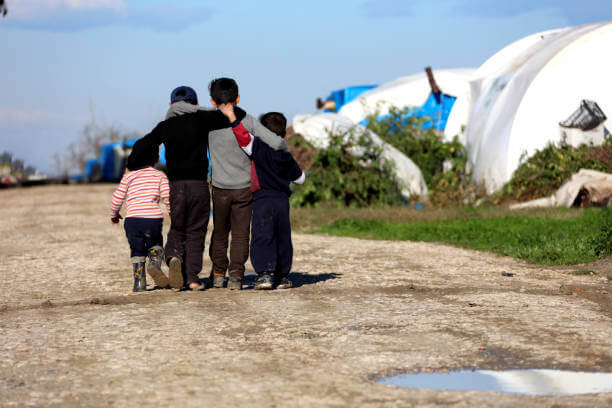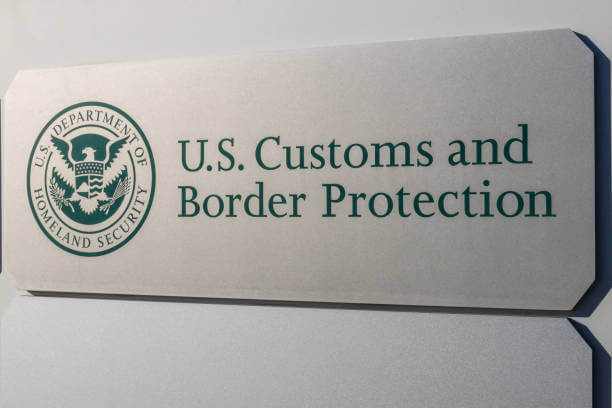Adjusting to a new life in a new country is a challenge for any immigrant. The risks and difficulties are always there and, although they vary according to each person’s situation, it is never an easy task to rebuild one’s life far from the country of origin.
However, there is one group of migrants that all the difficulties of a migration process affect more than any other: unaccompanied migrant children. Unfortunately, many of these children face a difficult situation and are often victims of labor exploitation in the country.
This is why Congress has launched an investigation into migrant child labor in the United States, demonstrating the seriousness of the situation. But, beyond this, every migrant child in the United States has rights and there are laws that protect them, as well as a special visa that could help them stay legally in the country: the U. S. Juvenile Status, also known as theSpecial Immigrant Juvenile Status (SIJS).
Therefore, today at Jaskot Law we will mention some of the rights of migrant children in the United States and we will explain what is and what are the benefits of the U. S. Juvenile Status.
If you or someone you love is going through a difficult situation regarding their immigration status, at Jaskot Law we can help. Contact us at +1 (410) 235-6868 or [email protected].
What is an unaccompanied migrant child?
An unaccompanied migrant child (UAC), as the name implies, is a foreign minor unaccompanied by any adult caregiver, and is defined as a child who meets the following characteristics:
- Do not have lawful immigration status in the United States.
- Are under 18 years of age.
- Do not have a parent or legal guardian in the United States.
- Do not have a parent or legal guardian available to care for you.

Treatment of unaccompanied migrant children
According to the U.S. immigration laws, when an individual border patrol from Department of Homeland Security (DHS) unaccompanied migrant children detained while crossing the border. United States borderThe latter has the obligation to deliver them to the Office of Refugee Resettlement (ORR)which has several reception centers where the children are placed while their permanent placement is being determined.

This is a program of the Department of Health and Human Services (HHS) which assumes custody and care of unaccompanied migrant children encountered by border patrols. However, it should be noted that the situation of these unaccompanied migrant children is extremely complex, as many are too young to understand the situation and are even separated from their parents, as we saw during the Trump administration.
The rights of unaccompanied migrant children in the U.S.
As we said, unaccompanied migrant children in the United States have rights, as established by the laws of the country and some international organizations. Some of these rights are:
- Right to a fair hearing: All migrant children have the right to a fair hearing in an immigration court. This means that they have the right to present evidence and arguments in their defense and to be represented by an immigration attorney.
- Right to legal representation: Migrant children have the right to be represented by an immigration attorney during the immigration process. If you cannot afford an attorney, you may request a court-appointed attorney to represent you.
- Right to family reunification: Migrant children have the right to be reunited with their parents or close relatives living in the United States if it is in their best interest.
- Right to education: All migrant children have the right to a free public education in the United States, regardless of their immigration status.
- Right to medical care: Migrant children have the right to receive necessary and immediate medical care, including emergency medical care and follow-up care.
- Right to a safe and adequate place to live: Migrant children have the right to live in a safe and adequate place that meets health and safety standards.
- Right not to be discriminated against: Migrant children may not be discriminated against because of their race, ethnicity, gender, religion or sexual orientation.
- Right not to be exploited: Migrant children have the right not to be exploited by their employers or others who may seek to take advantage of their migratory status.

It is important to remember that these are just some of the rights that unaccompanied migrant children have in the United States.
In addition, under the law, minors in the care of ORR centers are not only entitled to legal representation, but may also be able to obtain some immigration benefit from the U.S. government to help them remain in the country legally. And this is where U. S. Juvenile Status comes into play, one of many immigration benefits for immigrant minors seeking to reside in the United States.
And remember: if you or a family member is going through a difficult time with the immigration authorities, it is important that you seek the help of an immigration lawyer or a migrant rights organization.
At Jaskot Law We can help you reunite with your family members and/or regularize your immigration status in the country. Contact us at +1 (410) 235-6868 or [email protected].
What is U. S. Juvenile Status?
U. S. Juvenile Status, also known as Special Immigrant Juvenile Status (SIJS) or Juvenile Visa, is a class of visa specifically designed for immigrant children who have suffered abuse, neglect or abandonment by one or both parents. To be eligible, this type of visa requires unaccompanied migrant children to be under 21 years of age, unmarried and have a valid court order from a state family court.

Keep in mind also that the process of obtaining a youth visa and its benefits can sometimes be costly and complicated. That is why professional legal advice is essential and at Jaskot Law we have the experience and expertise to guide young people seeking a USA youth status to stay in the country. Contact us at +1 (410) 235-6868 or [email protected].
The benefits of U.S. Juvenile Status
A U. S. Juvenile Status can provide many benefits for unaccompanied migrant children in particular and migrant minors in general. Here are some of the main benefits of a Juvenile Visa:
- Legal pathway to permanent residency: while U.S. Juvenile Status does not guarantee permanent residency, it can be an important step towards achieving it in the future.
- Ability to work, study and reside legally: A Juvenile Visa grants the ability to work (as long as you are of legal age), study and reside legally in the United States. This is useful for both unaccompanied migrant children and young people, as it gives them the possibility of economic independence and planning for their future without fear of deportation.
- Availability to undocumented minors: U.S. juvenile status can also be applied for by undocumented minors, which is a critical benefit for unaccompanied migrant children who have entered the country without proper documentation.
- No verifiable financial support required: In order to obtain a U. S. Juvenile Status, it is not necessary for minors who apply to prove that they have some financial support to remain in the country. In short, this means that they do not need to rely on the financial support of a sponsor or family member.
- No Green Card application fees: Generally, minors applying for U.S. Juvenile Status are not required to pay Green Card application fees, alleviating some of the financial burden of the application process.
- Educational opportunities: A U. S. Juvenile Status can be a great educational opportunity to learn about new cultures and improve your language skills.

However, despite these benefits, before applying for U. S. Juvenile Status you should be aware that youth who receive a juvenile visa will not be able to apply for any immigration benefits on behalf of either parent, regardless of the type of abuse or neglect they have received.
Therefore, applying for a juvenile visa and its benefits means giving up the right to file a petition for immigration status on behalf of either of your parents. In addition, another disadvantage of this type of visa is that the price to obtain it can be quite high, including legal fees and the cost of living in a new country. For many young people, this can be a significant financial burden.
Therefore, before applying for U.S. Juvenile Status, it is recommended that you, your parents or legal guardians consult with an immigration attorney to discuss the best legal course of action for your case.
If you have problems with your immigration status and are thinking about applying for a Juvenile Visa, at Jaskot Law we can help you. Contact us +1 (410) 235-6868 or via [email protected].
Conclusion
Being an unaccompanied migrant child in a new country can be a difficult and dangerous task. Migrant minors unaccompanied by their parents or guardians are one of the most vulnerable groups and often face complicated situations.
Their situation is doubly delicate since they are not only immigrants, but also because they are often not old enough to understand their situation and their rights. This has led to many abuses, to the point that Congress has announced that it will intensify its investigation of migrant child labor in the United States.
However, unaccompanied migrant children have rights and laws that protect them, including some immigration benefits such as U. S. Juvenile Status or SIJS, a special visa that could help them stay in the country legally.
For all these reasons, it is necessary to understand the rights of unaccompanied migrant children in the United States and the immigration benefits they could apply for not only to remain legally in the country, but also to protect them from any kind of abuse.
And remember: if you or any of your loved ones need help with your immigration status, you can contact Jaskot Law. Contact us at +1 (410) 235-6868 or [email protected].
Sources
NPR.
UNICEF – Migration of children and adolescents.
USCIS – Special Immigrant Juveniles.
USCIS – Child Status Protection Act.
USCIS – Green Card based on SIJS.
Frequently Asked Questions
What is an unaccompanied migrant child?
An unaccompanied migrant child is a foreign national minor who is not accompanied by a responsible adult and who meets the following characteristics: does not have lawful immigration status in the United States, is under the age of 18, has no parent or legal guardian in the United States, and does not have a parent or legal guardian available to care for and care for him or her.
How are unaccompanied migrant children treated in the United States?
Under U.S. immigration law, when a Department of Homeland Security (DHS) border patrol apprehends unaccompanied migrant children while crossing the U.S. border, it is required to turn them over to the Office of Refugee Resettlement (ORR), a program of the Department of Health and Human Services (HHS) that assumes custody and care of unaccompanied migrant children encountered by border patrols. ORR has several reception centers where migrant children are placed while their permanent destination is being determined.
What are the rights of unaccompanied migrant children in the United States?
Unaccompanied migrant children in the United States have rights under U.S. law. Some of these rights include: the right to a fair hearing in an immigration court, the right to legal representation during the immigration process, the right to family reunification, the right to free public education, the right to necessary and immediate medical care, the right to live in a safe and adequate place that meets health and safety standards, and the right to be free from discrimination based on race, ethnicity, gender, religion or sexual orientation.
What is U. S. Juvenile Status and what are its benefits?
U. S. Juvenile Status (SIJS) is a special visa that could help unaccompanied migrant children stay legally in the United States. To obtain this status, the child must meet certain requirements, such as having no living or available parents who can care for and take custody of the child in his or her home country and having been declared a dependent of a U.S. court. Some of the benefits of U. S. Juvenile Status include the ability to obtain work authorization, the ability to travel outside the United States and return legally, and the ability to apply for permanent residency in the future.
How can Jaskot Law help unaccompanied migrant children in the United States?
If you or a loved one is going through a difficult situation regarding immigration status, Jaskot Law can help. They can be reached at +1 (410) 235-6868 or at [email protected]. Jaskot Law has attorneys specializing in immigration law who may be able to advise you on U. S. Juvenile Status and other legal remedies available to unaccompanied migrant children.

